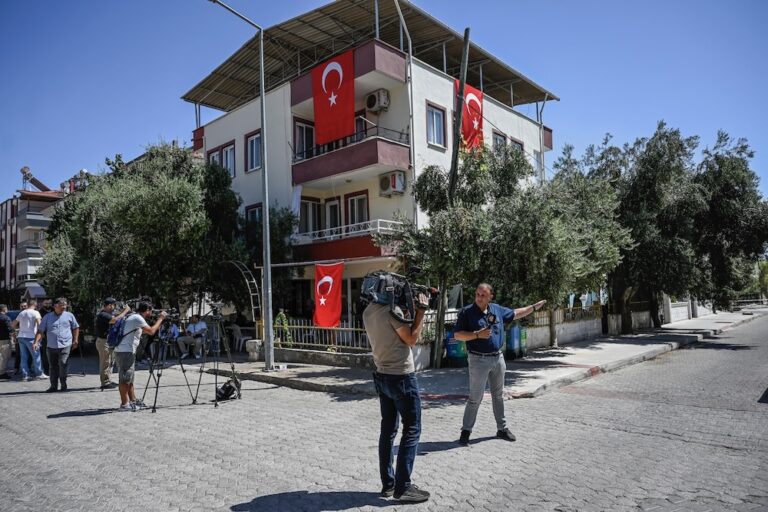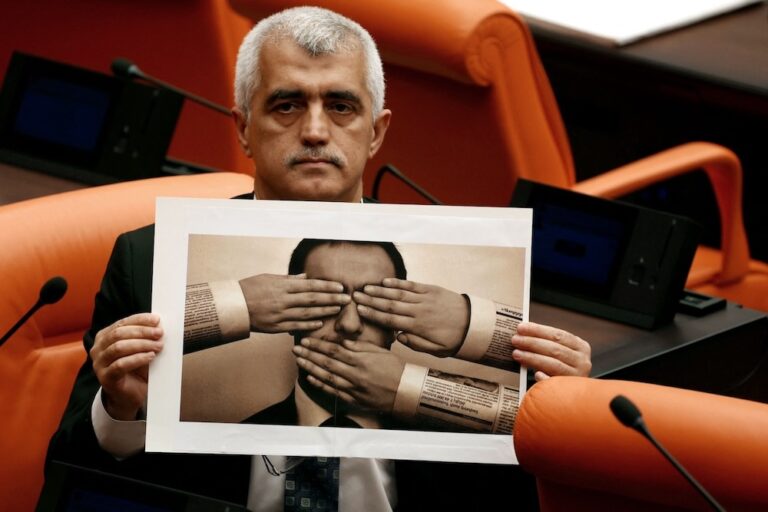(WiPC/IFEX) – On 3 May 2006, World Press Freedom Day, in Turkey trials continue against writers, journalists and publishers who have been charged with “denigration of Turkishness” under Article 301 of the Turkish Penal Code. International PEN is calling for an end to all trials against writers for the peaceful expression of their views, and […]
(WiPC/IFEX) – On 3 May 2006, World Press Freedom Day, in Turkey trials continue against writers, journalists and publishers who have been charged with “denigration of Turkishness” under Article 301 of the Turkish Penal Code. International PEN is calling for an end to all trials against writers for the peaceful expression of their views, and for the repeal of Article 301 that is in direct contravention of international standards that guarantee the right to freedom of expression.
On 1 May, Hrant Dink, editor of an Armenian language newspaper, “Agos”, who was found guilty of insulting Turkishness and given a six-month suspended prison term in October 2005, had his appeal against his conviction overturned. Dink had been accused for an article in his newspaper on the relations between Armenians and Turks, which included a phrase that the court said suggested that Turkish blood was “dirty”. Dink has repeatedly stated that his article had been misconstrued and that his aim is to improve relations between Armenians and Turks. Dink launched an appeal against his sentence and, in February, the Chief Prosecutor told the Appeals Court that the phrase under scrutiny could not be considered insulting. In light of this, the Court’s decision to uphold the case is particularly surprising.
Ten days earlier, on 20 April, another of a series of trial hearings took place against publisher Ragip Zarakolu. He is accused under Article 301 for publishing two books. The first, George Jerjian’s “The Truth Will Set us Free /Turkish-Armenian Re-Conciliation”, refers to the mass deportations of Armenians in 1915. If convicted, Zarakolu faces up to 7.5 years in prison. For the second book, Dora Sakayan’s “An Armenian Doctor in Turkey: Garabed Hatcherian’s Izmir Journal”, Zarakolu could receive a six year sentence. Although the trials have already dragged on for over a year, the hearings were adjourned further to 21 June 2006.
There was disappointment for Murat Belge, a columnist for “Radikal” who was among five mainstream journalists who went on trial in February 2006 for “attempting to influence the outcome of a trial” in articles that criticised a court’s decision to ban an academic conference on Armenia in November 2005. The conference eventually took place. Belge’s colleagues had the charges against them dropped on 11 April, when it was deemed that the trial was subject to a statute of limitation due to the length of time between the alleged offence and the charges. However, in Belge’s case it was deemed that the statue of limitation did not apply and his case will continue on 8 June. On 28 April the Bagiclar prosecutor’s office issued an appeal against the decision to discontinue the trial against Belge’s four co-defendants, and there is a possibility that the proceedings against them may restart.
These are just some of the more well known of the writers, journalists and publishers who are on trial in Turkey today for their writings. International PEN has long campaigned – and will continue to campaign – against the use of the courts to stifle freedom of expression in Turkey. It calls on the Turkish government to once again review its legislation with the aim of removing all remaining laws that allow for the prosecution of those who practice their right to write and publish freely. By so doing, the Turkish government can stand by its commitment to the right to freedom of expression as guaranteed under Article 10 of the European Convention on Human Rights and Article 19 of the International Covenant on Civil and Political Rights.


